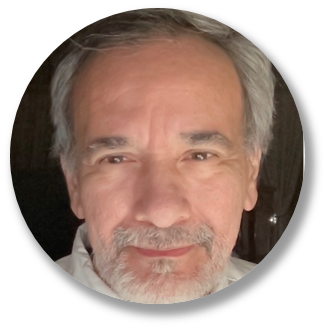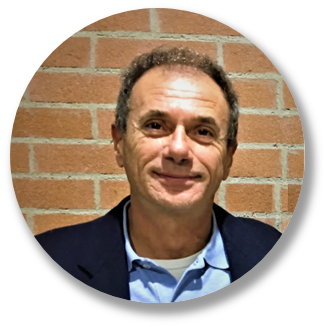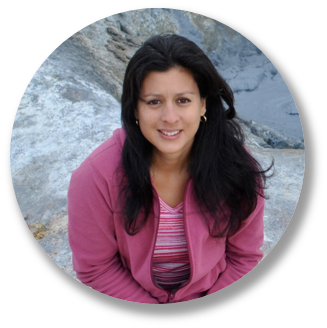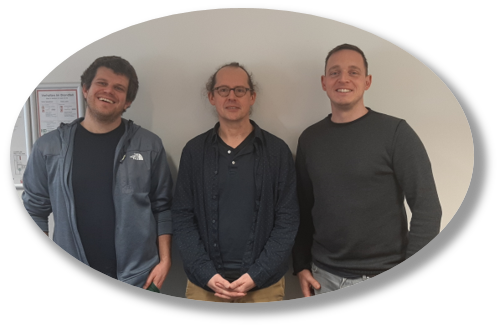
Lecturer of the heatflow.summerschool 2023

Graeme Beardsmore
University of Melbourne, Australia
Graeme Beardsmore is a Senior Fellow in Crustal Heat Flow at the University of Melbourne. He received his PhD in Geophysics from Monash University in 1996. Between 1996 and 1998 he furthered his heat flow studies at the Changsha Institute of Geotectonics (Changsha, Hunan Province, China) and Southern Methodist University (Dallas TX, USA). After returning to Monash University, he wrote “Crustal Heat Flow: A Guide to Measurement and Modelling” published by Cambridge University Press in 2001. Since 2003 he has applied his heat-flow knowledge and expertise in the search and characterisation of geothermal energy resources. He has a particular interest in developing new instruments and techniques, and in standardising prevailing practices. Examples of the former include a digital electronic divided bar for measuring thermal conductivity, and ‘Heat Needles’ for monitoring heat flow through the top metre of the Earth.
Selected publications:
- Sass J.H. and Beardsmore G., 2021. Heat Flow Determinations, Continental. In: Gupta H.K. (ed.), Encyclopedia of Solid Earth Geophysics, Encyclopedia of Earth Sciences Series. Springer, Cham. https://doi.org/10.1007/978-3-030-58631-7_72. 7pp.
- Harvey, C., Beardsmore, G.R., Rueter, H. and Moeck, I., 2016—Geothermal Exploration: Global Strategies and Applications. IGA Academic Books. 198pp. ISBN 978-3-9818045-0-8
- Beardsmore, G.R. and Cull, J.P., 2001—Crustal heat flow: A guide to measurement and modelling. Cambridge University Press. 321pp. ISBN: 978-0-5217970-3-0.

Juan Contreras
Ensenada Research Center, Mexico
Juan Contreras received a MSc. and Ph.D. in Tectonophysics from Columbia University in 1999. Since completing his doctorate, he worked at the Ensenada Research Center in México, where he is the Group Leader in the Tectonophysics and Heat Flow Lab and hold an endowed professorship from the Mexican Council of Sciences. His research involves marine and continental geophysical studies of the formation of thrust belts, the evolution of rift systems, and the transference of heat in the crust. In his interdisciplinary research, he and his students make use of marine reflection seismic cross-sections as well as heat-flow measurements. Currently his team is using information from deep submergence studies and autonomous underwater vehicles to develop AI algorithms to automatically detect fault arrays in bathymetry DEMs and models of hydrothermal circulation in vent fields in the Gulf of California.
Selected publications:
- Peña-Domínguez JG, Negrete-Aranda R, Neumann F, Contreras J, 2022. Heat flow and 2D multichannel seismic reflection survey of the Devil's Hole geothermal reservoir in the Wagner basin, northern Gulf of California. Geothermics 103. https://doi.org/10.1016/j.geothermics.2022.102415.
- Negrete-Aranda R, Neumann F, Contreras J, Harris RN, Spelz RM, 2021. Transport of Heat by Hydrothermal Circulation in a Young Rift Setting: Observations From the Auka and JaichMaa Ja'ag'Vent Field in the Pescadero Basin, Southern Gulf of California. Journal of Geophysical Research: Solid Earth 126 (8). https://doi.org/10.1029/2021JB022300.
- Neumann F, Negrete-Aranda R, Harris RN, Contreras J, Sclater JG, 2017. Systematic heat flow measurements across the Wagner Basin, northern Gulf of California. Earth and Planetary Science Letters 479, 340-353. https://doi.org/10.1016/j.epsl.2017.09.037.

Massimo Verdoya
University of Genoa, Italy
Massimo Verdoya received a PhD in Geophysics in 1992 and is a professor of Solid Earth Geophysics at the University of Genoa, Italy, since 2014. His research fields are the terrestrial heat flow and thermal modeling of geodynamical processes; the determination, processing and interpretation of geothermal data, heat flow mapping and databanking. In particular, he studies advective heat transfer in hydrothermal systems, the lithospheric thermal state and its rheological behaviour and seismicity. Furthermore, he is engaged in applying inversion methods of geothermal data for the reconstruction of the past climatic change. He studies thermal rock properties using laboratory and in-situ techniques for thermal conductivity and gamma-ray spectrometry for determining the concentration of heat producing elements. Massimo Verdoya is chair of the International Heat Flow Commission (IHFC) for the current period (2019-2023).
Selected publications:
- Verdoya M, Chiozzi P, Gola G, 2021. Unravelling the terrestrial heat flow of a young orogen: The example of the northern Apennines. Geothermics. https://doi.org/10.1016/j.geothermics.2020.101993.
- Verdoya M, Chiozzi P., 2018. Influence of groundwater flow on the estimation of subsurface thermal parameters. Int J Earth Sci (Geol Rundsch), 107:137–144. https://doi.org/10.1007/s00531-016-1397-x.
- Pasquale V, GOLA G, Chiozzi P., Verdoya M, 2011. Thermophysical properties of the Po Basin rocks. Geophysical Journal International. 186, 69-81. https://doi.org/10.1111/j.1365-246X.2011.05040.x

Raquel Negrete-Aranda
Center for Scientific Research and Higher Education at Ensenada, Mexico
Raquel Negrete-Aranda received a PhD in Geology in 2008 and is an associate professor in the Geology Department at the Center for Scientific Research and Higher Education at Ensenada, Mexico, since 2015. Her research fields include the magmatic evolution of volcanic systems, crustal thermal processes, heat and thermal energy transport mechanisms. In particular, she studies conductive and advective heat transfer in marine environments, like hydrothermal systems, rift systems, and the oceanic thermal state. Furthermore, she seeks to understand how marine heat flow observations provide fundamental constraints on physical, chemical, and biological processes occurring near and below the seafloor. She focuses on marine heat flow and the modelling of terrestrial processes that involve the thermal state of the lithosphere and its role in influencing geodynamics. Raquel Negrete-Aranda is a member of the International Heat Flow Commission (IHFC) for the current period (2019-2023).
Selected publications:
- Peña-Domínguez, J.G., Negrete-Aranda, R., Neumann, F., Contreras, J., Spelz, R.M., Vega-Ramírez, L.A., González-Fernández, A., 2022. Heat flow and 2D multichannel seismic reflection survey of the Devil’s Hole geothermal reservoir in the Wagner basin, northern Gulf of California: Geothermics, 103:102415, https://doi.org/10.1016/j.geothermics.2022.102415.
- Negrete-Aranda, R., Neumann, F., Contreras, J., Harris, R.N., Spelz, R.M., Zierenberg, R., and Caress, D.W., 2021, Transport of Heat by Hydrothermal Circulation in a Young Rift Setting: Observations from the Auka and JaichMaa Ja’ag’ Vent Field in the Pescadero Basin, Southern Gulf of California: Journal of Geophysical Research: Solid Earth, v. 126, https://doi.org/10.1029/2021JB022300.
- Negrete-Aranda, R., Contreras, J., and Spelz, R.M., 2013, Viscous dissipation, slab melting, and post-subduction volcanism in south-central Baja California, Mexico: Geosphere, v. 9, p. 1714–1728. https://doi.org/10.1130/GES00901.1

Ben Norden, Florian Neumann, Sven Fuchs
GFZ Potsdam, Germany
The GFZ Potsdam heat flow group is focusing on studies related to the Earth's thermal field and its importance for basic and applied research. That includes a detailed understanding of temperature and heat flow from surface to lithosphere scale and the associated rock thermal properties.From this group Sven Fuchs, who received a PhD in Geology in 2013 and is also the group leader of the Exploration Thermal Geosystems working group, Ben Norden, who received a Dr. rer. nat. in 2004 and is a Senior Scientist in the group, and Florian Neumann, who received his PhD in 2017 with a focus on marine heat flow and is currently working on the marine global heat flow database as a GFZ Postdoc, are hosting the summerschool at GFZ and take care of the parts dealing with hands-on experience like performing measurements in the thermal lab or temperature logging in boreholes.
Selected publications:
- Global Heat Flow Data Assessment Group et al. (2023): The Global Heat Flow Database: Update 2023. GFZ Data Services.
- Fuchs, S., Förster, A. and Norden, B., 2022. Evaluation of the terrestrial heat flow in Germany: A case study for the reassessment of global continental heat-flow data. Earth-Science Reviews, p.104231. https://doi.org/10.1016/j.earscirev.2022.104231.
- Fuchs, S., Beardsmore, G., Chiozzi, P., Espinoza-Ojeda, O.M., Gola, G., Gosnold, W., Harris, R., Jennings, S., Liu, S., Negrete-Aranda, R. and Neumann, F., Norden, B., Poort J., Rajver D., Ray L., Richards M., Smith J., Tanaka A. and Verdoya M., 2021. A new database structure for the IHFC Global Heat Flow Database. International Journal of Terrestrial Heat Flow and Applications, 4(1), pp.1-14. https://doi.org/10.31214/ijthfa.v4i1.62.
